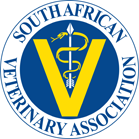Review Article
Animal-adapted members of the Mycobacterium tuberculosis complex endemic to the southern African subregion
Submitted: 04 July 2015 | Published: 26 April 2016
About the author(s)
Charlene Clarke, SAMRC Centre for TB Research, DST/NRF Centre of Excellence for Biomedical Tuberculosis Research, Division of Molecular Biology and Human Genetics, Faculty of Medicine and Health Sciences, Stellenbosch University, South AfricaPaul van Helden, SAMRC Centre for TB Research, DST/NRF Centre of Excellence for Biomedical Tuberculosis Research, Division of Molecular Biology and Human Genetics, Faculty of Medicine and Health Sciences, Stellenbosch University, South Africa
Michele Miller, SAMRC Centre for TB Research, DST/NRF Centre of Excellence for Biomedical Tuberculosis Research, Division of Molecular Biology and Human Genetics, Faculty of Medicine and Health Sciences, Stellenbosch University, South Africa
Sven Parsons, SAMRC Centre for TB Research, DST/NRF Centre of Excellence for Biomedical Tuberculosis Research, Division of Molecular Biology and Human Genetics, Faculty of Medicine and Health Sciences, Stellenbosch University, South Africa
Abstract
Members of the Mycobacterium tuberculosis complex (MTC) cause tuberculosis (TB) in both animals and humans. In this article, three animal-adapted MTC strains that are endemic to the southern African subregion – that is, Mycobacterium suricattae, Mycobacterium mungi, and the dassie bacillus – are reviewed with a focus on clinical and pathological presentations, geographic distribution, genotyping methods, diagnostic tools and evolution. Moreover, factors influencing the transmission and establishment of TB pathogens in novel host populations, including ecological, immunological and genetic factors of both the host and pathogen, are discussed. The risks associated with these infections are currently unknown and further studies will be required for greater understanding of this disease in the context of the southern African ecosystem.
Keywords: dassie bacillus; ecology; evolution; host jump; Mycobacterium mungi; Mycobacterium suricattae; Mycobacterium tuberculosis complex; phylogeny
Keywords
Metrics
Total abstract views: 4334Total article views: 7477
